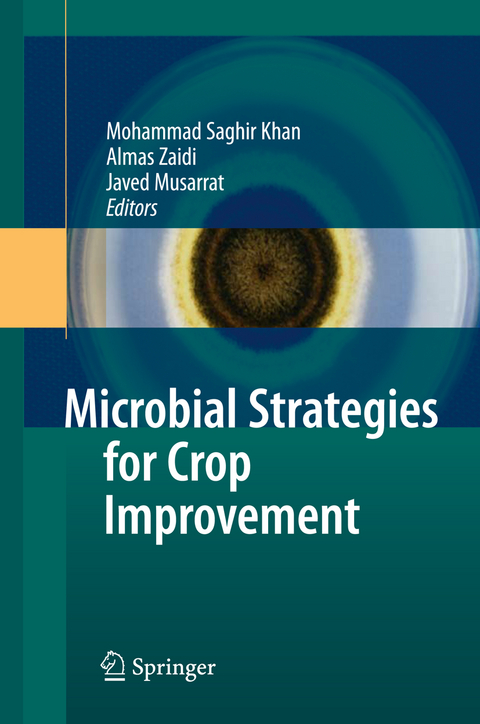
Microbial Strategies for Crop Improvement
Springer Berlin (Verlag)
978-3-642-42073-3 (ISBN)
With an ever-increasing human population, the demand placed upon the agriculture sector to supply more food is one of the greatest challenges for the agrarian community. In order to meet this challenge, environmentally unfriendly agroch- icals have played a key role in the green revolution and are even today commonly recommended to circumvent nutrient de?ciencies of the soils. The use of ag- chemicals is, though, a major factor for improvement of plant production; it causes a profound deteriorating effect on soil health (soil fertility) and in turn negatively affects the productivity and sustainability of crops. Concern over disturbance to the microbial diversity and consequently soil fertility (as these microbes are involved in biogeochemical processes), as well as economic constraints, have prompted fun- mental and applied research to look for new agro-biotechnologies that can ensure competitive yields by providing suf?ciently not only essential nutrients to the plants but also help to protect the health of soils by mitigating the toxic effects of certain pollutants. In this regard, the role of naturally abundant yet functionally fully unexplored microorganisms such as biofertilizers assume a special signi?cance in the context of supplementing plant nutrients, cost and environmental impact under both conventional practices and derelict environments. Therefore, current devel- ments in sustainability involve a rational exploitation of soil microbial communities and the use of inexpensive, though less bio-available, sources of plant nutrients, which may be made available to plants by microbially-mediated processes.
The Use of Microorganisms to Facilitate the Growth of Plants in Saline Soils.- Recent Advances in Plant Growth Promotion by Phosphate-Solubilizing Microbes.- Developing Beneficial Microbial Biofilms on Roots of Non legumes: A Novel Biofertilizing Technique.- Role of 1-Aminocyclopropane-1-carboxylate deaminase in Rhizobium-Legume Symbiosis.- Strategies for Crop Improvement in Contaminated Soils Using Metal-Tolerant Bioinoculants.- Functional Diversity Among Plant Growth-Promoting Rhizobacteria: Current Status.- Plant Growth Promoting Rhizobacteria and Sustainable Agriculture.- Soil Health - A Precondition for Crop Production.- Recent Advances in Biopesticides.- Benefits of Arbuscular Mycorrhizal Fungi to Sustainable Crop Production.- Enhancement of Rhizobia-Legumes Symbioses and Nitrogen Fixation for Crops Productivity Improvement.- Monitoring the Development of Nurse Plant Species to Improve the Performances of Reforestation Programs in Mediterranean Areas.- Pea Cultivation in Saline Soils: Influence of Nitrogen Nutrition.- Plant Growth-Promoting Diazotrophs and Productivity of Wheat on the Canadian Prairies.- Factors Affecting the Variation of Microbial Communities in Different Agro-Ecosystems.- Strategies for Utilizing Arbuscular Mycorrhizal Fungi and Phosphate-Solubilizing Microorganisms for Enhanced Phosphate Uptake and Growth of Plants in the Soils of the Tropics.
| Erscheint lt. Verlag | 31.10.2014 |
|---|---|
| Zusatzinfo | XVIII, 358 p. |
| Verlagsort | Berlin |
| Sprache | englisch |
| Maße | 155 x 235 mm |
| Gewicht | 581 g |
| Themenwelt | Naturwissenschaften ► Biologie ► Botanik |
| Naturwissenschaften ► Biologie ► Mikrobiologie / Immunologie | |
| Weitere Fachgebiete ► Land- / Forstwirtschaft / Fischerei | |
| Schlagworte | Agriculture • Agronomy • Biotechnology • Crop improvement • growth • microbe • microbes • Microbiology • Physiology • Plant • Plant growth • Plant Physiology • Plant Protection • quality • Soil |
| ISBN-10 | 3-642-42073-7 / 3642420737 |
| ISBN-13 | 978-3-642-42073-3 / 9783642420733 |
| Zustand | Neuware |
| Haben Sie eine Frage zum Produkt? |
aus dem Bereich


